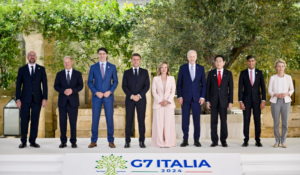Welcome to Extreme Investor Network, where we provide exclusive insights and valuable information on the latest economic developments. Today, we’re diving into the controversial decision by the Group of Seven (G7) to release $50 billion in frozen Russian assets to Ukraine.
EU Economic Commissioner Paolo Gentiloni recently announced the G7’s plan to unlock these assets by October, with the intention of providing a loan to Ukraine. This decision has sparked debates across the economic and political spheres, as it raises concerns about international law and the implications it may have on global relations.
The move to release these frozen assets comes at a time when Ukraine is facing significant challenges, both economically and politically. The Pandora Papers, a recent release of documents revealing offshore accounts held by politicians, shed light on the rampant corruption within the country. Ukraine’s reputation for corruption has long been a barrier to its integration with Western institutions such as NATO.
Furthermore, the decision to use these assets as collateral for a loan to Ukraine poses risks for the G7 nations involved. Should these assets be fully transferred to Ukraine, Russian President Putin could retaliate by confiscating assets held by Western countries and corporations. This could set a dangerous precedent for future international relations and economic sanctions.
Despite the controversy surrounding this decision, European Commission President Ursula von der Leyen defended the move, stating that it aims to make Europe a safer place. However, critics argue that the majority of these funds will ultimately flow back to Europe as reimbursement for aid sent to Ukraine, raising questions about the ethical implications of using illegally confiscated assets in this manner.
As we continue to monitor the unfolding developments in this situation, it’s crucial to consider the broader economic and geopolitical implications of such decisions. Stay tuned to Extreme Investor Network for more in-depth analysis and expert commentary on the ever-evolving world of economics.

